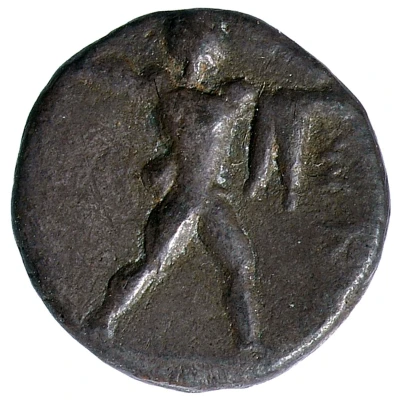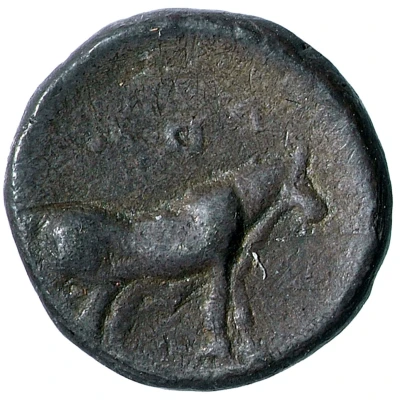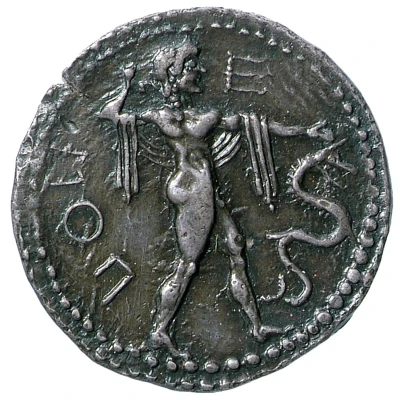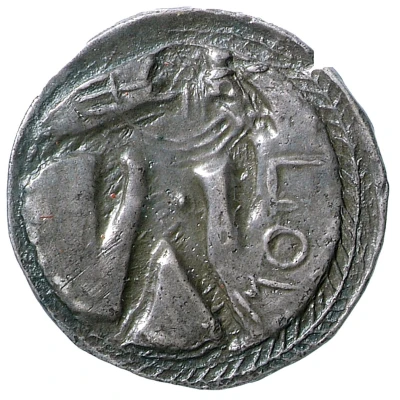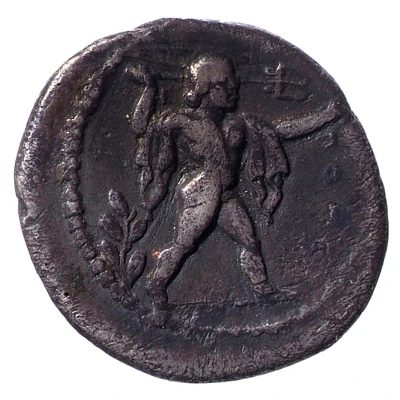
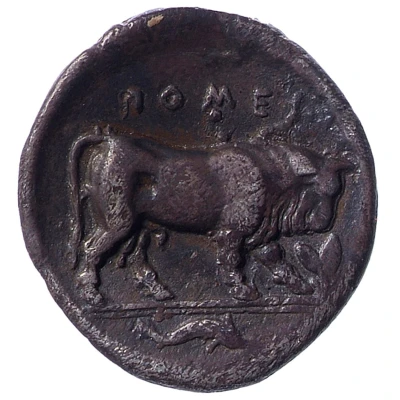

© Trustees of the British Museum
Triobol 445 BC - 420 BC
| Silver | 1.121 g | - |
| Issuer | Poseidonia (Lucania) |
|---|---|
| Type | Standard circulation coin |
| Years | 445 BC - 420 BC |
| Value | Triobol (½) |
| Currency | Phocaean/Campanian Drachm |
| Composition | Silver |
| Weight | 1.121 g |
| Shape | Round (irregular) |
| Technique | Hammered, Incuse |
| Demonetized | Yes |
| Updated | 2024-10-10 |
| Numista | N#393342 |
|---|---|
| Rarity index | 100% |
Reverse
Bull standing right, olive branch before and dolphin below.
Script: Greek
Lettering: ΠOMES
Interesting fact
The Triobol coin from Poseidonia (Lucania) was used as a form of currency in ancient Greece and has a unique design. One side of the coin features a portrait of a young man, believed to be a representation of the god Apollo, while the other side depicts a dolphin, which was a symbol of the city of Poseidonia. The use of a dolphin on the coin may have been chosen because the city was located near the sea and was known for its maritime trade and commerce.
